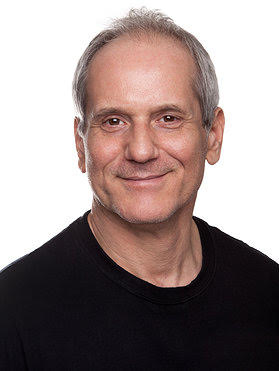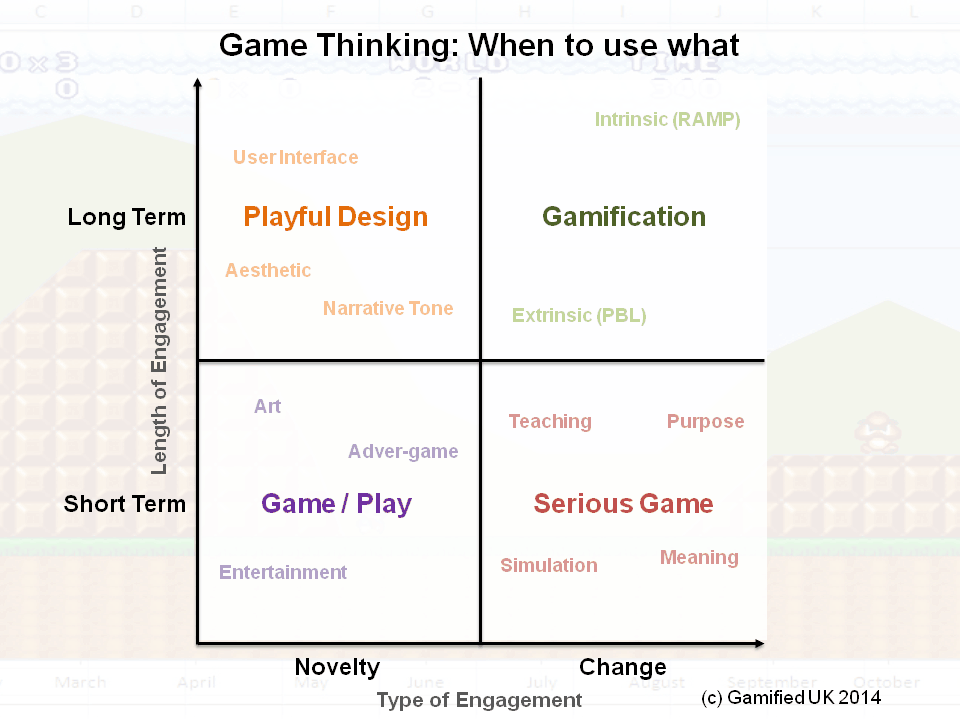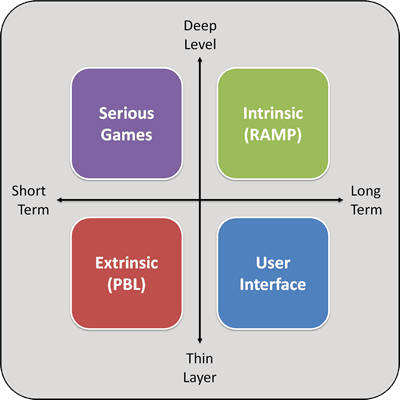 I have been pleased to call David Chandross a friend for a couple of years now. We “met” through our shared love of games and gamification over Twitter and Facebook. Since then I have come to know him as a fierce proponent of using games to help people learn and gain a deeper understanding of topics in the healthcare industry. Not a man who backs down from a fight, I have had my share of arguments with him, but his intelligence and depth of knowledge always impress me. I wanted to learn a little bit more about him, so asked him if I could put out a short interview with him. Please read and enjoy! If you want to get in touch with him to find out more, drop him an email [email protected].
I have been pleased to call David Chandross a friend for a couple of years now. We “met” through our shared love of games and gamification over Twitter and Facebook. Since then I have come to know him as a fierce proponent of using games to help people learn and gain a deeper understanding of topics in the healthcare industry. Not a man who backs down from a fight, I have had my share of arguments with him, but his intelligence and depth of knowledge always impress me. I wanted to learn a little bit more about him, so asked him if I could put out a short interview with him. Please read and enjoy! If you want to get in touch with him to find out more, drop him an email [email protected].
- Hi David, thanks for agreeing to this interview. Can you start by giving a little bit of background on your life before gamification?
I took a masters in cognitive neuroscience and then a masters in medical education, followed by a Ph.D. in higher education. For years, I taught in medical programs and biology courses and took a lot of my lead from the emerging field of problem-based learning (PBL). What struck me about PBL is that instead of lectures, students learned through solving real-world medical problems and this lead to higher retention and applicability.
- So, what brought gamification into your life?
In 1990-1994, I was teaching undergraduate medical students using case studies to support my lectures and noticed that they ordered far too many lab tests and gave way too many treatments to their “simulated patients’. In order to make them choose both more thoughtfully, I designed a game in which they had to pay for each test and treatment, from a limited budget. That sharpened them up fast! Within a few months, first-year medical students were acting like fully trained doctors, asking orderly questions, never ordering excessive tests and focusing a lot more on the “right decision path”.I never stopped using game-based learning again. I then refined the game system over a few years and hundreds of students to a full fantasy RPG. Both of these ideas came from my own love of computer gaming and board gaming. I loved Zork and early Atari games and when the Settlers of Katan came out I was hooked on strategic gaming. I was ranked 250th out of 60,000 players in Soldier of Fortune 2, and I bought almost every German-style board game when they came out a few years later. I then met with successful game designers and joined a lot of BBs, (this was the early internet, no forums!), and learned how to create deep, strategic games. I am a biologist who learned gamification to teach with.
- What fields are you working in with gamification at the moment?
I am focused on games for health professions education, we have an app coming online soon in which you will be able to “play doctor” on your cell phone playing a rather deep game called Cascade. This will be the intellectual property of Baycrest Health Sciences, the leading research, and training unit in gerontology in Canada. We are also converting courses in social media, nursing, multimedia and others to full gamified experiences at Ryerson University here in Toronto. I am also funded to do work designing games to treat addiction in adolescents using a new model we designed called “parallel gamification”. At the other end of the spectrum, we are doing gamification to treat depression and isolation in seniors. I do some consulting work for private industry as well.
- What makes your approach different to others you have seen out there. I know you are not a fan of leaderboards, competition, and many other standard gamification tricks!
My approach is to design compelling, deep strategic games which feature cooperative elements and provide the user with knowledge or skills which they can use to improve their life with. However, I do not work in game world design, which is more of a “second life” type simulated game system. That is something I wish to expand into, Oculus Rift and virtual learning communities.
- In short – how would you define your gamification?
I define gamification rather uniquely, given my odd place in things. I do not like the term game-based learning nor do I like the concept of learning games. I see all gamification is a system for learning if we define learning as intentional behavioral change. So I tend to see all successful gamification as some form of learning. When a thief meets a pickpocket…..
- What are some good examples of gamification you have seen out there.
Sadly I do not get to see a lot of gamification systems out there that would compel me to play. A good game should be addicting and you would love to play it just for fun. So I must respond that I take all my inspiration from successful board and video games. For example, Reiner Knizia’s “Stephenson’s Rocket” has 100,000 possible opening moves. Now that is my kind of game design. I think the world is still waiting for deep design. Some experimental models such as Louse Sauve’ and David Kaufman’s “frame games” are moving us closer to that kind of mark.
- Do you feel there are any really bad examples out there?
I have not seen any really bad examples of gamification. The courage it takes to launch such systems at this time in the development of the field are so noteworthy I cannot locate criticism. We don’t know what works and what doesn’t yet. The field is very young from a research standpoint. All our data is inferential. Yu-Kai Chou is compiling ROI data, it’s starting to happen. So for now, I would have a hard time criticizing someone else’s game system. My preferences for deep strategic design reflects my interests in engaging the player and following a simple law of “design elegance”. It isn’t necessarily better.
- Can you give us an example of a project you have worked on that you feel really proud of and what makes it stand out for you?
Bringing Cascade, our medical diagnosis, and treatment game into an app this March is my best moment. We have literally designed a game to teach you how to learn any field of health care, in fact, any field of anything using problem solving and a deep strategic game system. When this goes live this Spring that will be something that I have longed to create and took us a lot of work to get there. Kudos go out to Raquel Meyer, Ph.D. and Jennifer Reguindin, M.Sc.N. for working on this with me for the past 2 years.
- Who in the gamification world inspires you (if anyone!)?
The question is more, who doesn’t? Gabe Zichermann, being a Toronto boy like me, was the first name I heard, you see, I had been doing this for 10 years and to find anyone who was doing something similar blew me away. And he was doing it amazingly well, his website blew my mind! I thought other people are doing this too? Then, of course, my heroes are all German-style board game designers and Amy Jo Kim, mostly because she is just so savvy, creative and smart and so successful. She inspires me to this day. And we are both musicians so I relate to her on that. The list goes on, there is this guy Andrzej I have heard about who is doing something with Ninja Monkeys that sounds interesting!
- What advice would you give to people out there looking to get into gamification, or who are already there and looking for new directions?
I would say get a degree in either IT or education or game design and then go for it. A math degree is not a bad option either. Good game design is all about the math, period. Chance, scoring, recognition, comparing baseline performance, measuring outcomes, all math. I am terrible at pure math but taught statistics for 7 years. Believe it nor not, math is still the basis of my design. For new directions, I would invite designers to create deep, compelling games that are addictive and rewarding. Master the fine art of blending form and function. Think like Dieter Rams, the founder of Braun. He is the one to look to. How to you create a game that is high in aesthetics (hedonics, pleasure) that still fulfills its “job function”. Study the biography of Dieter Rams, read interviews with Reiner Knizia. And oh yeah, play a lot of games yourself. A game designer is only as good as the number of different games he has played.



